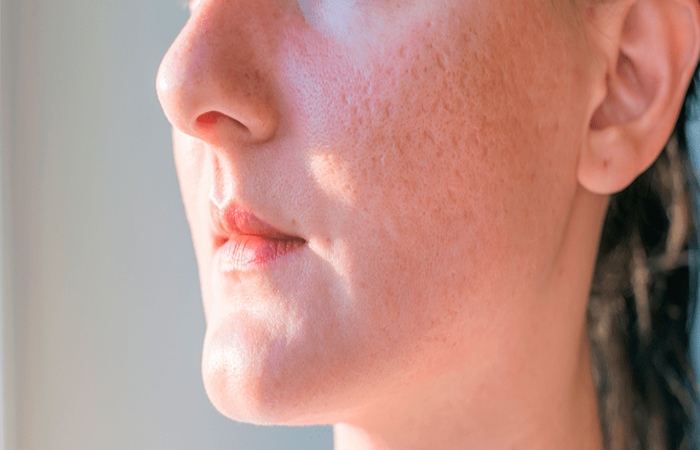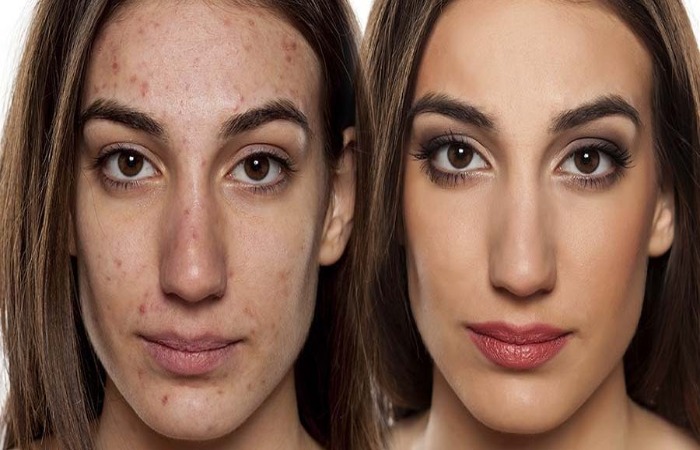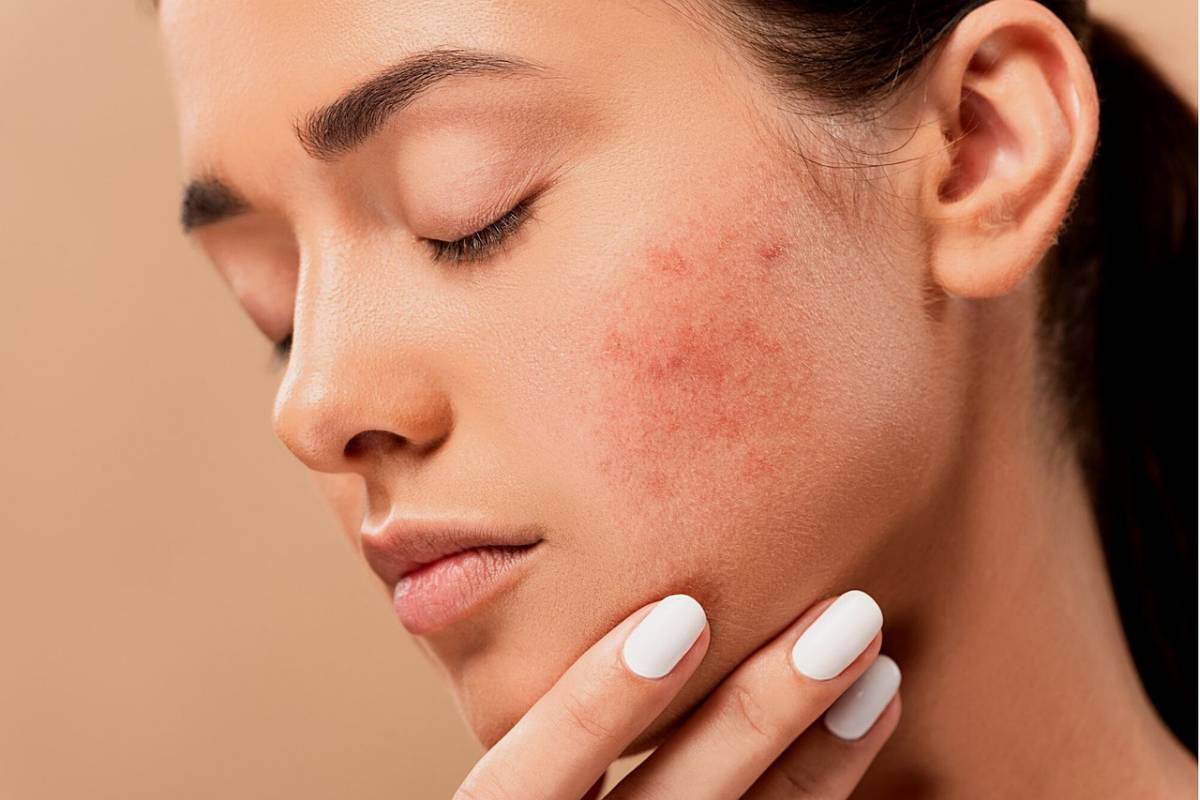Acne breakouts are frustrating as the marks and scars can appear on the face and other body parts. A lot of people find acne scars an undesirable reminder of a painful and disturbing skin issue. Fortunately, acne scars are not as permanent as before, thanks to some home remedies and medical procedures.
Living with acne can be difficult, but for many people, the problems continue even after the papules and pustules have disappeared. Acne can leave marks and scars on the skin, and in cases of severe acne, the scars they leave behind can also be very painful and cause great concern.
In this post, you can find ways to reduce acne scars’ appearance and encourage healthy skin.
Table of Contents
What Causes Acne Scars?

Avoid touching black and whiteheads and other marks with your fingers or other items. When you push too hard on these blemishes (especially ones that aren’t fully formed yet), you can hurt the delicate veins, glands, and tissues around them. It can worsen acne symptoms and increase the risk of scarring.
Scars form when the outermost layer of the skin, the epidermis, is damaged, and the deeper layers of the skin are also affected. The skin cannot regenerate with the usual efficiency and this wound will be replaced by a coarse tissue composed of collagen fibers. These fibers fill the injury from the inside out and facilitate the healing of the damaged skin area. This replacement tissue can heal the wound but is also highly visible. It is why in this article, you will discover how to fill the eggs on the face caused by acne using different techniques.
Home Remedies
Different kinds of acne scar remedies are available over-the-counter which many of them can help people treat acne and reduce the appearance of scars. An acne scar treatment is your go-to option if you want safe and effective acne scar removal.
Natural Remedies
Many use natural remedies for clarifying acne marks, but the evidence behind them is unknown. Some can cause additional discomfort or problems, so that people should be careful. Home remedies for the treatment of acne scars traditionally include:
Lemon juice
Coconut oil
Raw honey
Aloe vera gel
Acids
Alpha Hydroxy Acids (AHAs)
AHAs help to prevent the blocking of pores and remove dead skin cells. Alpha hydroxy acids (AHAs) Doctors can prescribe AHAs for acne treatment and acne scars reduction. AHAs are a mild acid form that scrapes the skin’s surface layer to expose raw, new skin.
Retinoids
Some topical retinoids can help to remove scars from acne. Dermatologists note that topical retinoids block inflammation, reduce acne lesions, and accelerate cell regeneration. Retinoids can potentially make the skin sensitive to the sun. Anyone with acne or scar therapy retinoids should wear outdoor sunscreen.
Lactic Acid
Lactic acid extracts dead cells from the skin. It may help decrease the presence of scars and lighten the skin’s general texture. Lactic acid can also aid in lightening dark scar tissue, while hyperpigmentation is sometimes inducing.
Due to this potentially harmful effect, products that contain lactic acid should be check before they are used to treat acne scarring on a small patch of skin. Lactic acid is found in many acne products. The latter is also present in the diluted vinegar of apple cider, making the treatment more natural and economic.
Salicylic Acid
It is an element naturally found in acne skin care products. Salicylic acid helps extract dirt and other waste from the skin’s pores, skin cells, and acne. It also helps to minimize redness and to swell within the region, which can reduce scarring appearance.
Salicylic acid is ideal for all forms of scars. For most people dealing with acne, it adds nicely to a regular skincare routine. Individuals with sensitive skin may be needed to test a substance that contains the acid in their skin for dryness or discomfort before it is using on their face.
Medical Treatments

Several treatments to minimize acne scars are available in most aesthetic clinics around you. Depending on the type of skin and the scarring degree, the dermatologist can prescribe different procedures. Acne scar treatments include:
Dermal Filler
Dermatologists may suggest that the use of soft tissue fillers minimizes the presence of scars. Dermatologists may use a collagen-based product filler that might need to be a screen for allergies. Otherwise, it would be a choice to remove fat from a different part of the body. Other commercial agents such as hyaluronic acid (HA) and poly- L-lactic acid can also be use.
Dermal fillers function for atrophic scars best, but many are provisional. Usually, the procedure lasts from 6 to 18 months. However, a person should speak to his dermatologist about some ongoing choices.
A dermatologist may prescribe medical treatments for acne scars. The skin color, acne severity, and scarring of one person should be the doctor’s basis to which chemical peel product to prescribe them. Some chemical peels may not be as effective as others. For example, there was no reduction in scars’ appearance by 25% of those who used glycolic acid. An individual can have to try various kinds of peel to see which one works for them.
Injections
Corticosteroid injections can help heal the elevated acne scar tissue if someone has hypertrophic and keloid scars. Typically, the procedure requires a variety of injections. A dermatologist will track the results once every few weeks in his office.
Laser Treatment
A laser treatment revives the skin without solvent or scrubbing. It eliminates the outer skin layer to expose the younger skin cells below, decreasing the scarring appearance. However, laser therapy is not ideal for everyone, as its effectiveness depends mainly on a person’s acne scar and skin type. For those with sensitive skin, the treatment can also cause a reaction.
Micro Needling
Micro Needling is the procedure where tiny needles are inserted into the skin around the scar to boost the body to create more collagen. This collagen can smooth out the skin and reduce acne scars. Many people experience after treatment redness, pain, and inflammation, but the symptoms are temporarily diminishing.

